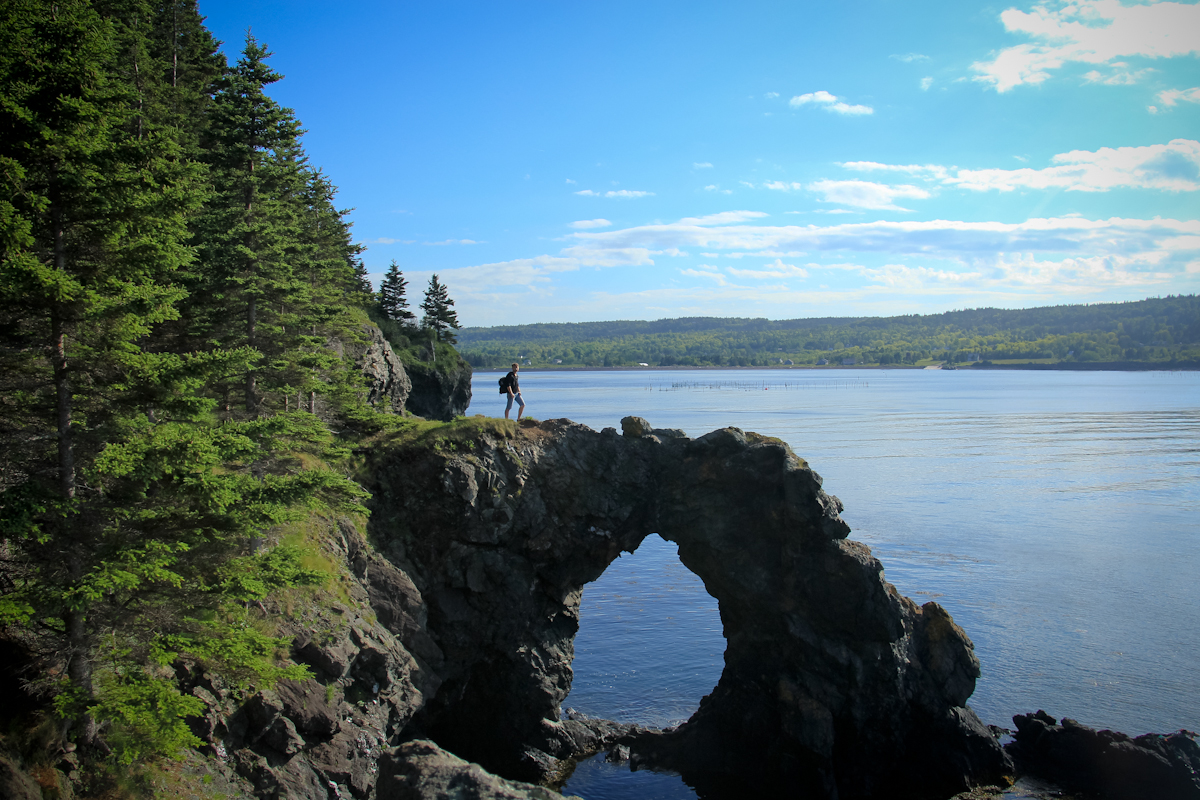Over the years, I’ve received countless questions on a frequent basis about my experience backpacking across Canada. In order to help more readers out there, I figured I’d get some of these questions out in the public. Please be sure to check back often as I’ll likely update this list as I receive more questions. Let’s get to it!
Where should I start my backpacking journey in Canada? Toronto or Vancouver?
There’s really no right answer here. The only way it might make sense to decide, is if you can find a cheap flight when you’re arriving or departing. Just remember that Canada is stupidly big. You’re going to spend a good amount of time traveling between cities if you’re trying to cover it all. If you play your cards right, VIA Rail and Greyhound allow you to travel by night, which can save you some money. But going from east to west, or west to east, shouldn’t play into your decision making too much. Unless maybe you’re slowly making your way to the mountains for winter. Then it might make sense to start east in the summer and work your way west. Again, won’t make much of a difference in terms of cost though.
What are the most Backpacker-friendly Locations in Canada?
That totally depends. Are you a hostel-backpacker, or a camper-backpacker? The best backpacker places for you really depend on what type of backpacker you are.
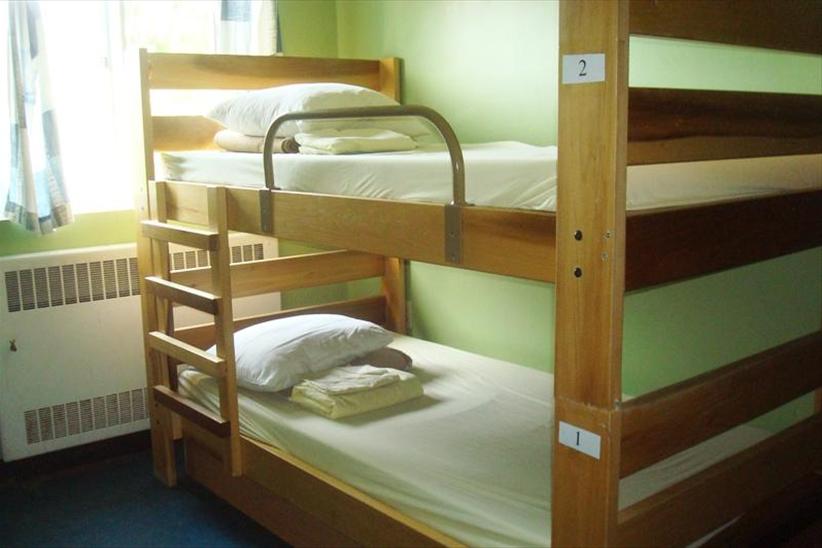
Hostel-Backpacker
If you’re a hostel-backpacker, you’re going to want to stick near more densely populated areas. With that being said, don’t let the regions with smaller populations scare you off. There’s a surprisingly large amount of hostels in Canada, be they city hostels, rural hostels, wilderness hostels, or something in between. British Columbia, Alberta, and Ontario have the most hostels of all the provinces. You’ll easily find a hostel in every capitol city in Canada, and countless more in some curious corners of Canada. From the Churchill Tundra Hostel in northern Manitoba, to the Castle Mountain Wilderness Hostel in Bow Valley. Your best bet is to check out HI Hostels Canada, or use Google to find some locally operated hostels or budget hotels in any location you might be visiting.
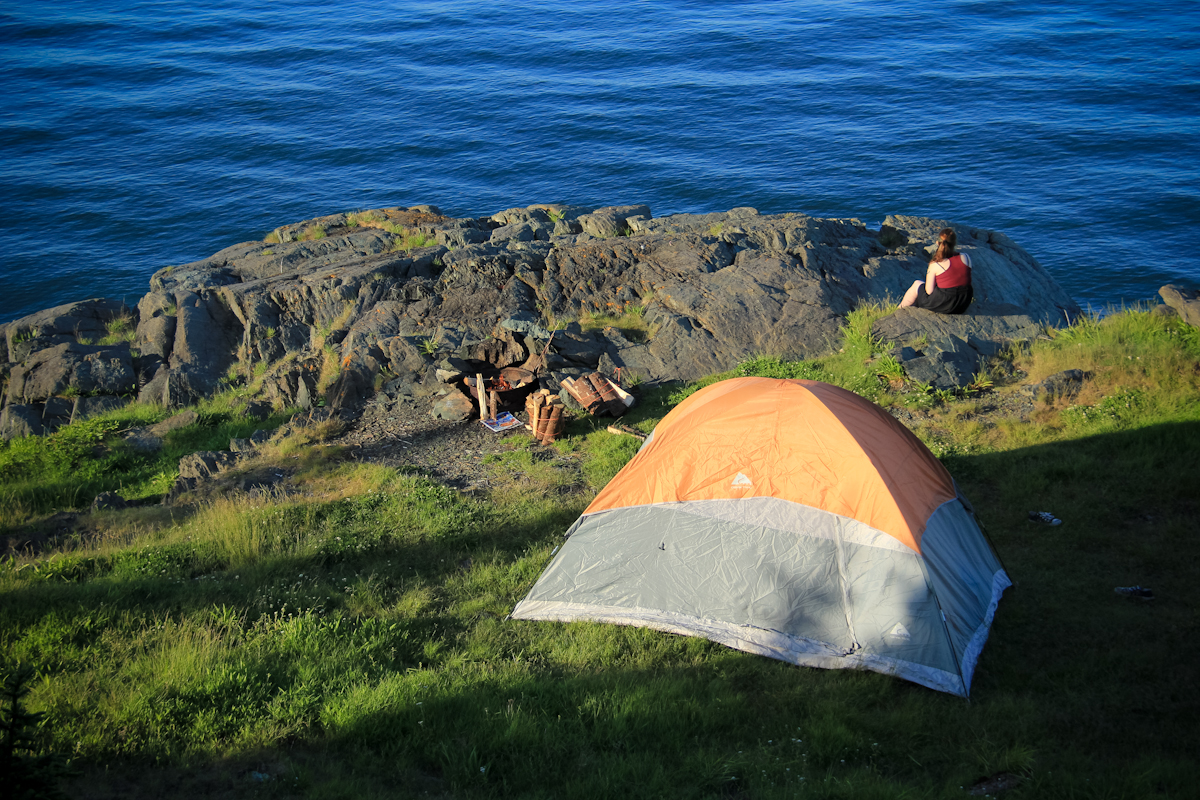
Camper-Backpacker
If you’re the camper-backpacker, hitch hiking, sleeping in the wilderness, or campgrounds, and everywhere between, this country is your oyster. You may have a tougher time hitch hiking in Canada than in other parts of the world. Several highways in BC and Ontario consider hitch hiking illegal, but I know several people who’ve hitchhiked from Vancouver to Halifax without issue. If you’re going to try hitch hiking, just be sure to brush up on hitch hiking safety tips.
In Canada, it’s normally legal(ish) to practice backcountry / wilderness camping. The big thing is to make sure you’re not on private land. That means you can unroll a sleeping bag on nearly any piece of crown owned land. Just be sure to look for signs, and try to ask around to find out if it’s cool. Talk to Park Rangers, explain you’re not a nutter, and they should be cool with it, assuming you’re not starting fires and cleaning up after yourself. Do your research though. Call a tourism hot line, don’t be afraid to ask. Worst case is they’ll say “nope, not here”.
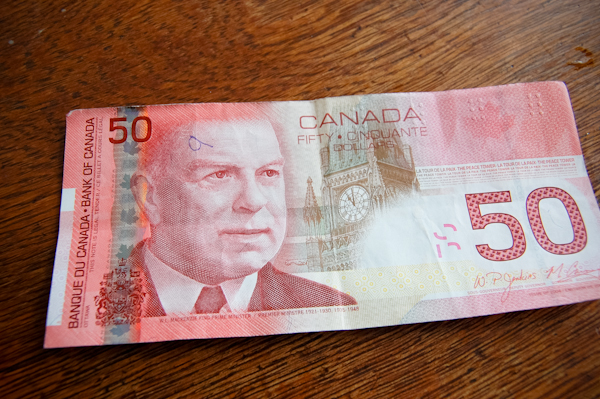
How much money do I need to Backpack Across Canada?
Ah, my least favourite question to answer, here’s why. I unfortunately don’t know you. I don’t know how much or how little you need to get by. Can you live on ramen noodles and instant coffee for months? Will you be doing tours regularly? How many tours per week? Will you be staying in hostels? Campgrounds? Couchsurfing? Hotels? Resorts? There’s too many variables for me to make some ludicrous statement like “You can EASILY travel Canada for X amount of dollars!“.
Anytime I’m budgeting for anything, I like to budget high. I’d rather go into extended travel under the assumption that everythings going to cost me 15% more than I think it’s going to. Budget on the high end, then aim to beat that budget every week, or every month you’ll be on the road.
Initial Investment for Backpacking is really only a few hundred bucks. Just a matter of getting your gear and a backpack. Your big expense will be your flights and having enough savings. You should already have clothes. Don’t be oversold on getting pack-able compressable microfibre clothes. Sure they’re nice to have and pack nice. But if you’re wearing polyester pants everyday, you’re going to start to hate yourself. Take some jeans, a warm sweater, a fancy shirt or two. You should own this stuff already. Remember, you can always shop when you’re there if you feel you’re missing out on something crucial. Just get a decent well-fitted backpack and wing it. At least that’s what I do. Then comes the hard part.
Creating a Travel Budget
$40 per day (Shared Dorm Room)
+$10 per day (basic food – pasta/ramen/sandwich meats )
+$20 per day (beer/drinks/coffee)
+$120 per week (tours, museums, etc – $17.14 per day)
= $609.97 per week or $2439.92 per month
*Edited Math. Thanks to Dave for correcting my horrible use of addition and multiplication in the comments below.
Now you need to also consider the if you’re going to get around by Greyhound? Plane? Train? Backpack Tour bus like Moose Network? There’s going to be another cost for that. Whether you pay for that before you start the trip or midway through, it’s something to consider ahead of time.
Can you do it cheaper? Absolutely you can! But plan for the worst. When you’re on the road, sometimes its hard to say no. Try to save up enough as if you’re going to go hog wild. When you see how fast your account goes down in the first week of travel, you’ll likely tighten up your belt. Hopefully this should give you a better idea of what you can expect when you’re about to set off on your own trip.
If you need help identifying Canadian money, I wrote a post on that.
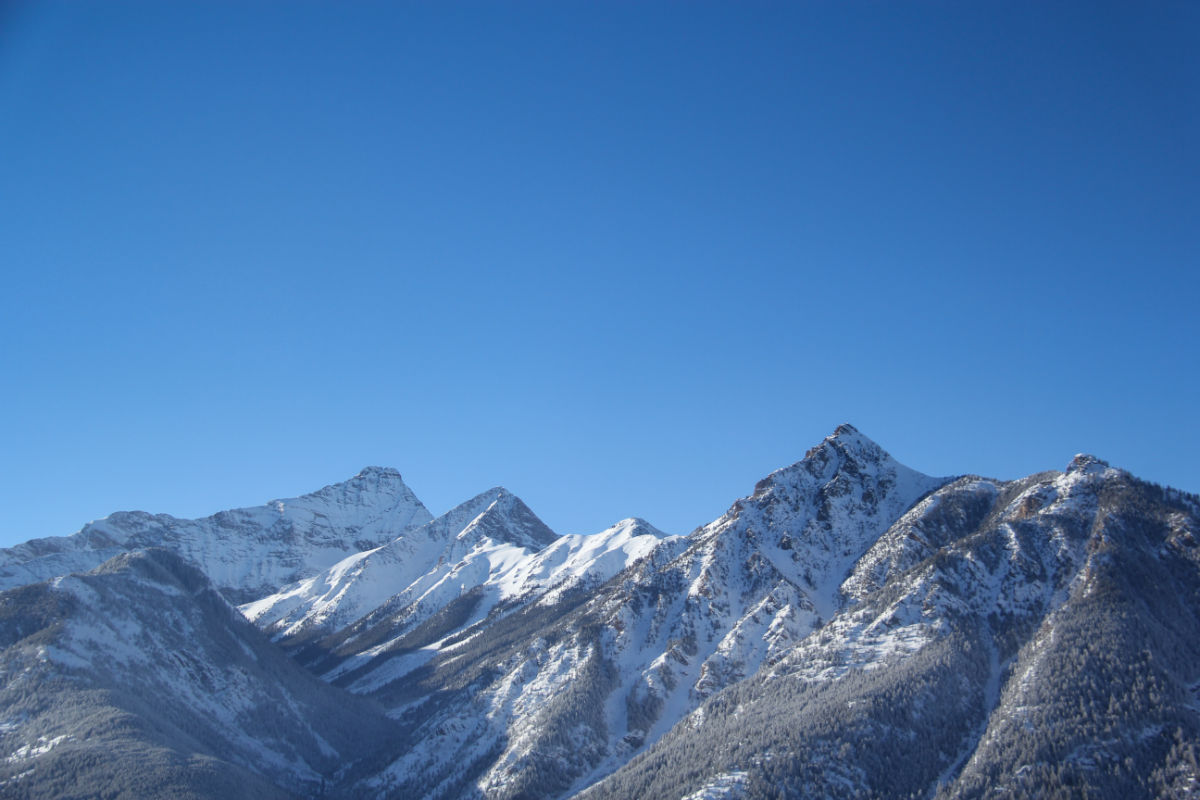
When is the cheapest season to travel Canada?
Unfortunately, Canada is always expensive. You’ll find rates go down a bit in the Fall (Late September to November) and in Spring (April – June). The catch is that some of the tourism industry shuts down in those months. Not all of it, but just some tour companies are seasonal. So it’s something to consider. Summer and Winter are definitely the busier times to be a tourist in Canada. You’ll find you have to book hostels and hotels further in advance and budget a bit extra. Just remember, it’s busy for a reason.
What are the must see’s, must-do’s when you’re visiting Canada?
Well for all of that, you’ll just have to continue reading my blog.
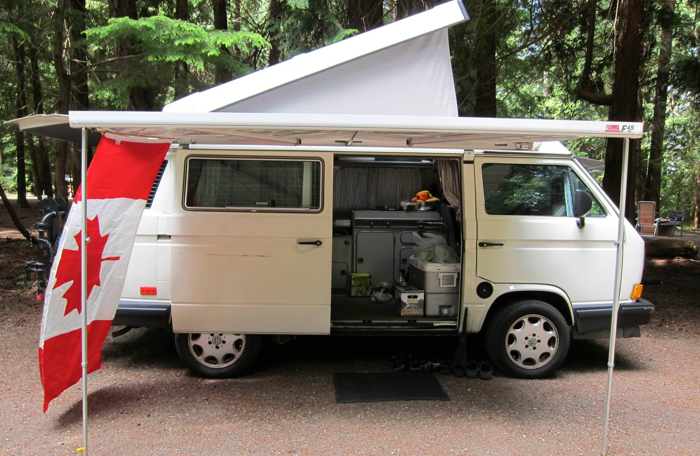
I’m buying a Campervan or RV and travelling across Canada. Where can I stay?
Many RV / Campervan travellers make an effort to see as many national parks, provincial parks, and regional parks. Most allow for some form of RV camping. They’re fairly inexpensive, from 20 – 40 dollars per night, with discounts for extended stays. While you can always try to park outside of campgrounds, there’s a strong chance you’ll be visited by some form of law, indicating that you can’t stay there. Technically, they can ticket you. But most police officers will give a warning first, unless you’re near a sign that says “No Camping or Overnight Parking”.
Looking to rent a campervan? Check Wicked Camper Vans.
A great tip for Campervan / RV / Motorhome travellers – Walmart allows free camping in their parking lot. Weird, I know. Not the most glamorous location, and there’s no sewer, water, or electrical hookups, but if funds are tight or you’re just making a stop before heading somewhere more your speed, this might be an option for you. The idea is that when they let RV’s camp out, most are going to wander in, and resupply their vehicles with whatever goods they might need.

How can I work in Canada?
International Experience Canada (IEC) manages students and young professionals working abroad in Canada. There are countless ways to get signed up, but at the end of the day, however you get signed up, it’ll end up going through IEC. According to their website, the following countries have an agreement in place which allows students and non-student aged 18 – 35* to temporarily work in Canada.
List of countries with IEC Work Abroad in Canada Agreements
| Country | Age Limit | Working Holiday |
Young Professionals |
International Coop |
|---|---|---|---|---|
| Australia | 18-30 | Yes | Yes | Yes |
| Austria | 18-30 | No | Yes | Yes |
| Belgium | 18-30 | Yes | No | No |
| Chile | 18-35 | Yes | Yes | Yes |
| Costa Rica | 18-35 | Yes | Yes | Yes |
| Croatia | 18-35 | Yes | Yes | Yes |
| Czech Republic | 18-35 | Yes | Yes | Yes |
| Denmark | 18-35 | Yes | No | No |
| Estonia | 18-35 | Yes | Yes | Yes |
| France | 18-35 | Yes | Yes | Yes |
| Germany | 18-35 | Yes | Yes | Yes |
| Greece | 18-35 | Yes | Yes | Yes |
| Hong Kong | 18-30 | Yes | No | No |
| Ireland | 18-35 | Yes | Yes | Yes |
| Italy | 18-35 | Yes | No | No |
| Japan | 18-30 | Yes | No | No |
| Korea, Rep. | 18-30 | Yes | No | No |
| Latvia | 18-35 | Yes | Yes | Yes |
| Lithuania | 18-35 | Yes | Yes | Yes |
| Mexico | 18-29 | Yes | Yes | Yes |
| Netherlands | 18-30 | Yes | Yes | No |
| New Zealand | 18-35 | Yes | No | No |
| Norway | 18-35 | Yes | Yes | Yes |
| Poland | 18-35 | Yes | Yes | Yes |
| Slovakia | 18-35 | Yes | Yes | Yes |
| Slovenia | 18-35 | Yes | Yes | Yes |
| Spain | 18-35 | Yes | Yes | Yes |
| Sweden | 18-30 | Yes | Yes | Yes |
| Switzerland | 18-35 | No | Yes | Yes |
| Taiwan | 18-35 | Yes | Yes | Yes |
| Ukraine | 18-35 | Yes | Yes | Yes |
| United Kingdom | 18-30 | Yes | No | No |
The table above is courtesey of IEC
If you can’t find your country in the list, try to connect with one of these recognized organizations for other travel and work opportunities in Canada. If you’re over the age of 35 contact Citizenship and Immigration Canada for information on other work permit options.
More information on Working in Canada
Information on Working Abroad in Canada
Information on Travel and Working in Canada
Struggling with government lingo? Consider using SWAP (Students working abroad program). I used them back when I worked/traveled in New Zealand and Australia. Very much worth the money.
What are some common jobs for backpackers in Canada?
Chairlift attendee at ski resorts, bartender, waitress, dishwasher, customer service, hospitality front desk, cleaning staff, hostel worker, farm hand, fruit picker, tree planter, Volunteer farm hand via WWOOF or Help Exchange, the list goes on. If you already have a trade or a proven career skillset, you can try using it here as well, though it might be tougher than some of the jobs above as your employer needs to understand you’ll likely only be working for 1 year unless they sponsor you to work longer.
Do you have a question you’d like to ask?
Leave a comment below if you have any other questions about backpacking Canada. I’ll try to get back to you as soon as I can. I will try to update this list if the question seems relevant to a larger audience.
